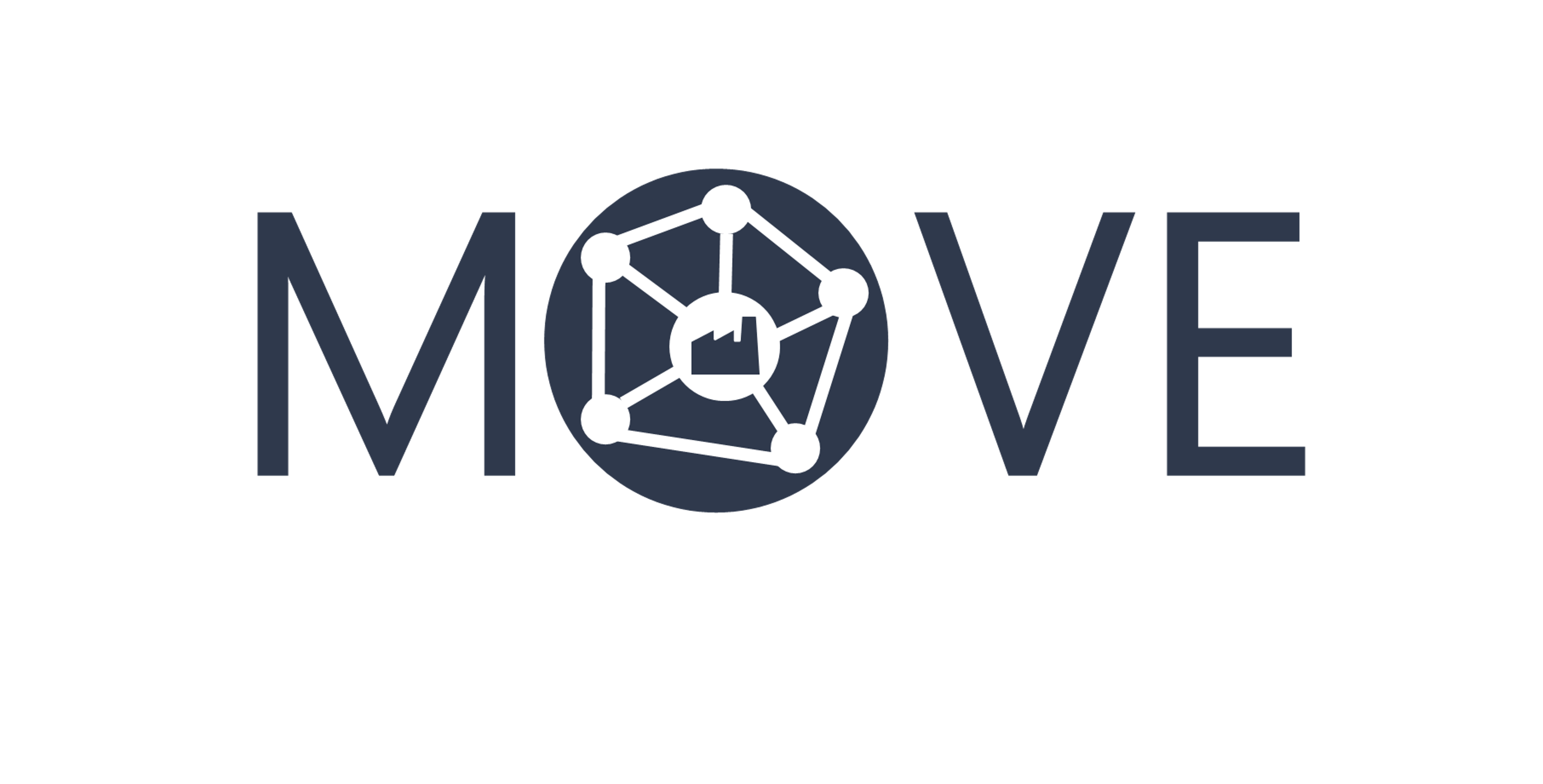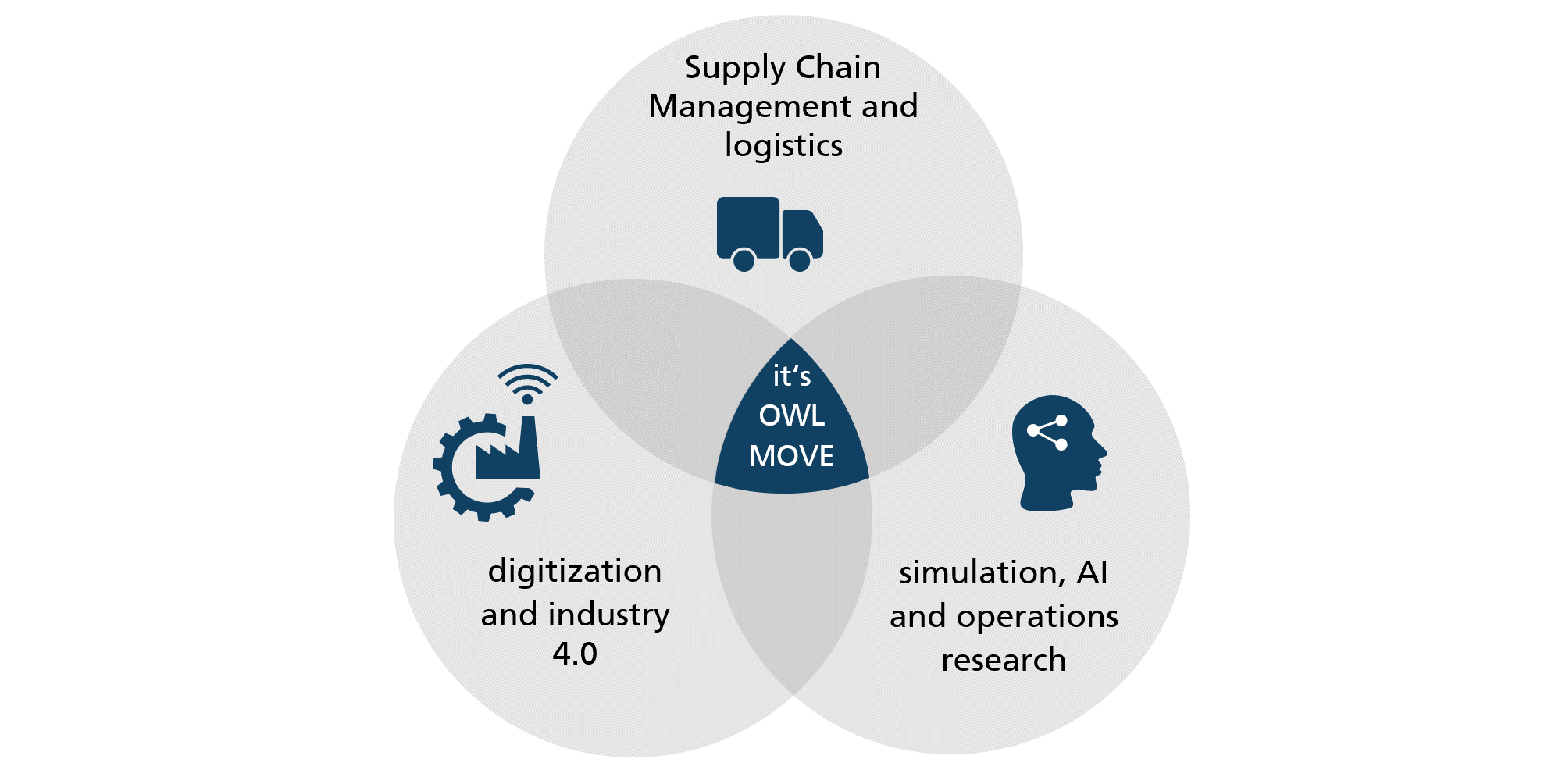Realisation in three pilot projects
The methodology's application experience is being processed into solution models and a process model for transfer through three pilot projects. To achieve this, the CRISP-DM model was expanded to include aspects of consensus building of expert knowledge and communication with AI specialists in the form of a specification technique. Another important focus was the detailed inventory of existing data for developing customised AI and simulation solutions. Assistance modules were developed for three pilot projects to overcome challenges in demand and delivery date forecasting, as well as parts tourism inaccuracies.
Parts tourism: As part of the project, Fraunhofer IML focused on recording and reducing the tourism of an industrial partner. Recommendations and several simulation models using the internal simulation tool OTD NETWORK were created to analyse different network alternatives. By linking the simulation models with an algorithm configurator, they proposed and implemented a cost-optimized parameterization of selected inventory parameters. By comparing the optimized parameterization for reducing partial tourism and its impact on the overall network efficiency with the manually parameterized alternatives considered during the planning process, the potential benefits of these two linked technologies can be demonstrated.
Inaccurate demand forecast: As part of the project, the original sales forecast of an industrial partner was analysed. Also, the customer's forecasts and external factors were considered, such as industry-specific or economic developments, using tried-and-tested AI algorithms to improve the forecast values.
Inaccurate delivery date forecast: To ensure timely deliveries and maintain customer satisfaction, accurate delivery date forecasting is necessary. Two different approaches were used, both involving the analysis of historical data. Firstly, conventional statistical and stochastic methods were combined in an expert system to develop forecasts. Secondly, AI models were used to analyse and evaluate sub-process steps.
Role of Fraunhofer IML:
The Fraunhofer IML's Supply Chain Engineering department has significant expertise in practical research on supply chain management. We regularly use service-oriented IT solutions for contract research, which deliver promising results in strategic and tactical planning and operational control. These solutions are based on technological instruments such as the OTD NETWORK simulation tool, developed within the department for discrete-event simulation of supply chains. They are particularly useful in availability management and demand and capacity management. Based on experience and requirements from both the use cases and the method concept, we have further developed the OTD NETWORK simulation tool.
 Fraunhofer Institute for Material Flow and Logistics IML
Fraunhofer Institute for Material Flow and Logistics IML
